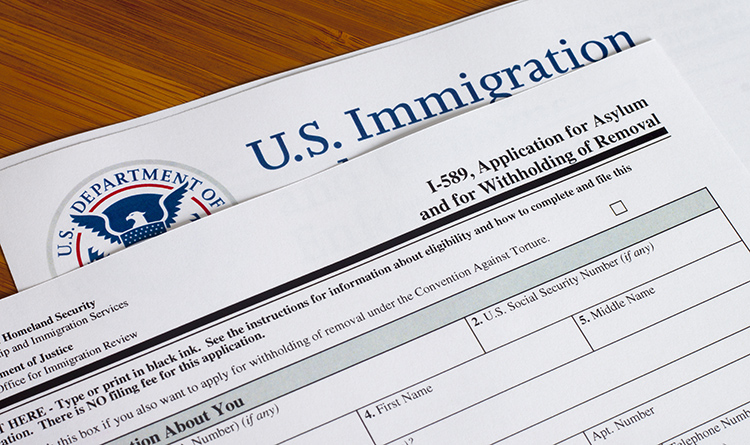9th Circuit blocks two policies that restrict and discourage asylum applications

Image from Shutterstock.
A federal appeals court on Friday blocked two Trump administration policies that affect asylum-seekers.
In one decision, the San Francisco-based 9th U.S. Circuit Court of Appeals blocked a Trump administration policy that denies asylum to immigrants who don’t enter the United States legally through a port of entry.
In the other decision, the 9th Circuit blocked a policy requiring immigrants who apply for asylum to wait in Mexico while their cases are pending.
Cornell University law professor Stephen Yale-Loehr, an immigration law expert, commented on the decisions in a statement. “Together, the two decisions represent a significant setback for the Trump administration’s efforts to restrict asylum applications,” he said.
“The Department of Justice will surely rush to the Supreme Court to try to stop the court of appeals’ injunctions from taking effect. In the meantime, asylum-seekers can again stay in the United States while their cases are heard. They may be detained, but at least they won’t be faced with trying to survive in some of Mexico’s most dangerous cities.”
Yale-Loehr pointed out that both decisions were issued by the same three-judge panel.
The ACLU has press releases on the decisions here and here. NBC News and the Recorder covered both decisions, while the New York Times and the Washington Post have stories focusing on the remain-in-Mexico decision.
In the remain-in-Mexico case, the 9th Circuit ruled 2-1 that the plaintiffs had shown a likelihood of success on their arguments that the policy is inconsistent with federal law and in violation of treaty obligations. The case is Innovation Law Lab v. Wolf.
A federal judge had blocked the policy in April 2019, but a 9th Circuit motions panel lifted the injunction a month later. The new 9th Circuit opinion said the motions-panel analysis does not bind later panels considering cases on the merits.
In the port-of-entry case, the 9th Circuit unanimously upheld an injunction blocking the policy.
The 9th Circuit said plaintiffs were likely to succeed on arguments that the port-of-entry rule is an arbitrary and capricious interpretation of federal law and unreasonable under treaty obligations.
The case is East Bay Sanctuary Covenant v. Trump.
Judge Ferdinand Fernandez was the swing judge in the two cases. He said he believed the panel was bound by prior opinions by the motions panel, which lifted an injunction in the remain-in-Mexico case, but not in the port-of-entry case.
Write a letter to the editor, share a story tip or update, or report an error.


